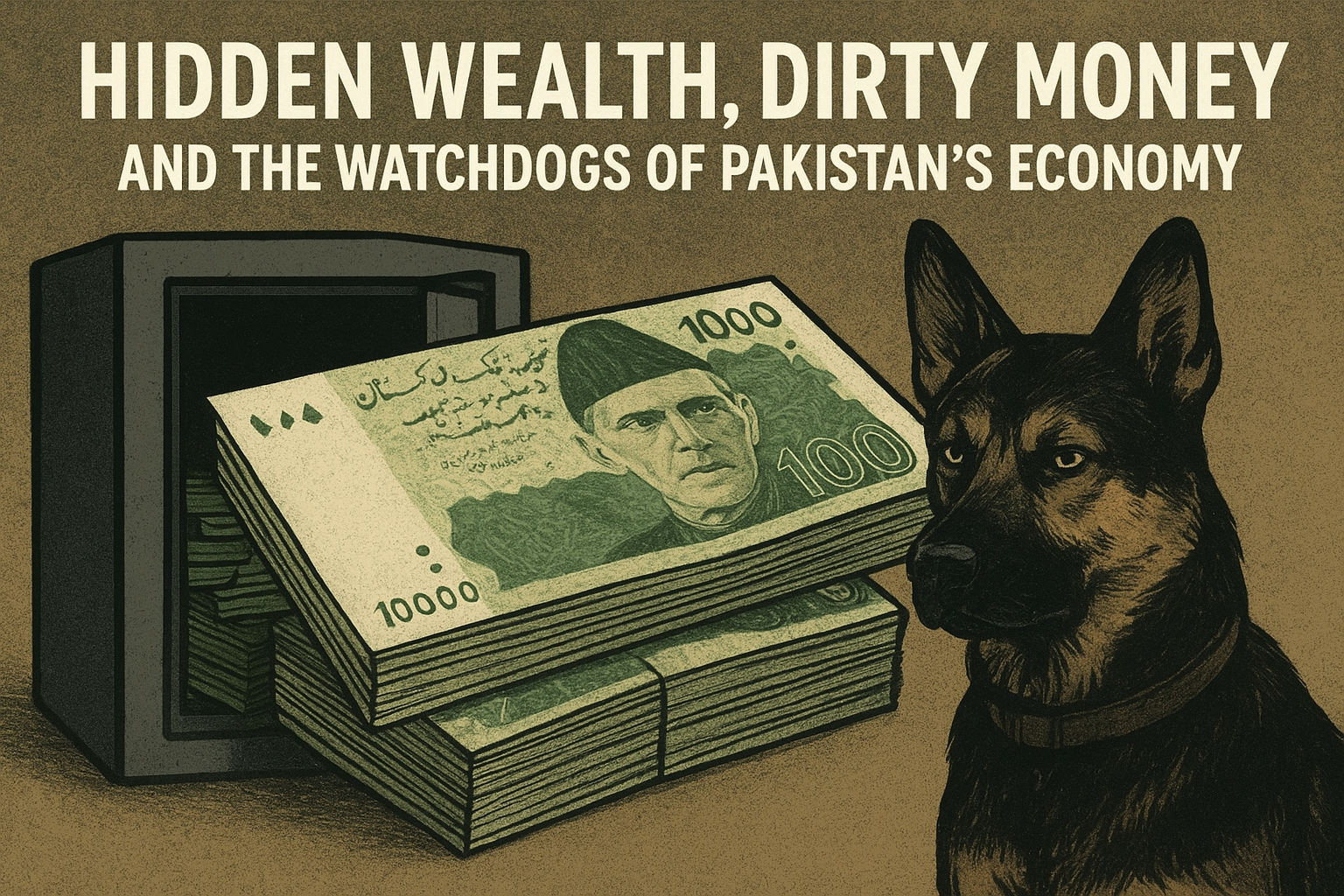
Pakistan’s economy has long struggled with the challenge of an undocumented sector and money laundering. The undocumented economy operates outside the formal taxation and regulatory system, leading to revenue losses for the government and creating loopholes for corruption, tax evasion, and money laundering. According to various studies, nearly 40% of Pakistan’s economy remains undocumented, weakening the tax base and fueling illegal financial flows.
To curb these issues, Pakistan has established multiple institutions such as the National Accountability Bureau (NAB), Federal Investigation Agency (FIA), Anti-Corruption Establishments (ACE), the Corporate Crime Directorate (CCD), and the Financial Monitoring Unit (FMU) of the State Bank of Pakistan. However, the effectiveness of these agencies remains under debate.
The Problem of Undocumented Economy and Money Laundering is that Individuals and businesses avoid taxes by operating outside the formal sector, Cash transactions, informal businesses, and unregistered assets create a parallel economy, This leads to reduced government revenue and greater dependence on foreign loans.
when peoples collect Funds from corruption, smuggling and tax evasion are transferred through fake accounts or “hawala/hundi” systems. Money laundering is not only an economic crime but also a national security concern, as it can finance terrorism and destabilize financial institutions.
Role of Pakistani Institutions such as NAB, it has been active in investigating high-profile corruption and money laundering cases. Mostly NAB accused are being politically motivated, selective in accountability, and weak in prosecution.
In parallel another agency FIA deals with transnational crimes, cybercrimes, immigration, and financial frauds. Its Anti-Money Laundering (AML) Wing investigates suspicious transactions and hawala networks. FIA mostly faces Limited manpower, lack of advanced forensic tools, and political interference, Thats why its reduce its efficiency.
Anti-Corruption Establishments (ACE) Operates at the provincial level. Deals mainly with bureaucratic corruption, land scams, and misuse of authority. Highly politicized and lacks coordination with federal agencies.
Financial Monitoring Unit (FMU) – State Bank of Pakistan Works as Pakistan’s Financial Intelligence Unit (FIU) in line with FATF requirements. FMU Collects and analyzes Suspicious Transaction Reports (STRs) and Currency Transaction Reports (CTRs) from banks and financial institutions. FMU Strengthened after FATF grey-listing, but still needs technological upgrades and independence.Pakistan travel guide
These institutions have contributed positively by Increasing awareness about financial crimes , beating international compliance (e.g., FATF conditions) and also Collecting financial intelligence through FMU.
However, challenges remain more because of Overlapping jurisdictions cause confusion and delays and Weak prosecution system allows criminals to escape punishment. NAB for corruption, FIA for transnational crimes, FMU for financial intelligence). But duplication of roles and poor coordination reduce impact. A single powerful financial crime authority could integrate resources, avoid duplication, and build expertise in forensic accounting, cyber-tracking, and financial intelligence. However, concentration of power in one agency risks political misuse.
Pakistan’s fight against the undocumented economy and money laundering requires both institutional reform and political will. While NAB, FIA, ACE, CCD, and FMU all play important roles, their overlapping jurisdictions and weak coordination often dilute the impact of accountability efforts. Ultimately, the issue is less about the number of agencies and more about their independence, professionalism, and collaboration. Without these reforms, Pakistan’s undocumented economy and money laundering will continue to hinder sustainable economic growth.
“Muhammad Bilal Khan is a former government officer and an experienced public relations practitioner, with deep insights into governance, accountability, institutional reforms and expertise in communication strategy.”
Source:https://dailytimes.com.pk/1357171/hidden-wealth-dirty-money-and-the-watchdogs-of-pakistans-economy-2/


